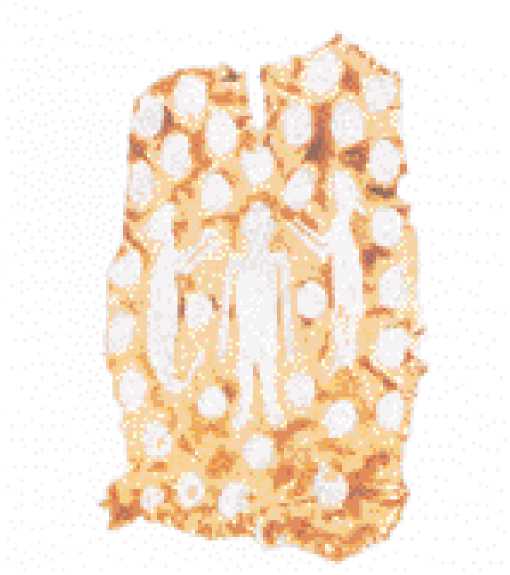Pocahontas is probably the most famous of all Indian women. She was the daughter of Wahunsonakok, a powerful chief of about 30 different bands and 200 villages in the part of North America that is now Virginia. The various bands under his rule have come to be called the Powhatan Confederacy after his band, although it was not a true confederacy in that power was centralized under a single leader. Powhatan, pronounced pow-uh-TAN or pow-HAT-un, is thought to mean “at the falls.” The English colonists who established the colony of Jamestown in Virginia in 1607, the first permanent English settlement in North America, had trouble pronouncing and remembering Wahunsonakok’s real name. They started calling him by the place-name, and he became known as Chief Powhatan. The village of Werowocomoco on the York River is thought to have been the capital of the confederacy.
According to legend, Pocahontas saved the life of Captain John Smith, the leader of the Jamestown colonists. Supposedly, she intervened just before her father was about to behead Smith, who was his prisoner. Whether Smith’s capture or Pocahontas’s intercession actually happened is uncertain. But it is known that the English angered Wahunsonakok because they took the best land for themselves, and he retaliated by having his warriors take prisoners, Captain Smith among them. The English appeased the chief by crowning him a king in an English-style ceremony. Wahunsonakok released Smith unharmed.
Then in 1613, Pocahontas was captured by the English and held as a hostage to bargain with Wahunson-

Hide decorated with shells, showing a man and two deer (It is thought to have belonged to Chief Powhatan and is known as Powhatan's Mantle.)
Akok for the freedom of other prisoners. While at Jamestown, she was converted to Christianity and baptized. Then she was courted by a settler named John Rolfe. After having gained her father’s permission, she married the Englishman in 1613. Their marriage brought about a period of peace between the Indians and English.
Pocahontas sailed across the Atlantic to visit England with her husband. There she was received as royalty herself and met the king and queen. Yet like so many Indians who came into contact with whites, she died from a European disease, in 1617. Wahunsonakok died the following year.
Wahunsonakok’s earlier words of peace to Captain Smith were recorded for posterity:
Why will you take by force what you may quietly have by love? Why will you destroy us who provide you with food? . . . We are unarmed, and willing to give you what you ask, if you come in a friendly manner, and not with swords and guns, as if to make war upon an enemy.




 World History
World History









